Justice in democratic countries is supposed to be independent, but some prosecutors and investigating magistrates conveniently forget this. Indeed many among them are deeply enmeshed in politics, pursuing agendas – and vendettas – of their own.
PARIS – In democracies, justice is supposed to be independent. Some prosecutors and investigating magistrates, however, conveniently forget this. Indeed many among them are deeply enmeshed in politics, pursuing agendas – and vendettas – of their own.
The phenomenon of politicized prosecutors and investigating magistrates is becoming global, arising in democracies as diverse as Japan, Italy, France, Spain, Turkey, and Argentina. In all these countries, prosecutors and magistrates hurl accusations of corruption against governments and ruling parties – charges that also happen to suit the political and institutional interests of the magistrates.
Japan ’s state prosecutor has, for example, accused Ichiro Ozawa, the General-Secretary of the newly elected Democratic Party of Japan, of having received illegal funds to run the DPJ’s recent campaign against the Liberal Democratic Party. That three close aides to Ozawa have been indicted only months after the DPJ’s victory strikes many Japanese as odd, given the well known corruption of the LDP when in power.
But the LDP worked hand in glove with Japan’s deeply entrenched bureaucracy, of which the prosecutors are a part. The DPJ has vowed to shake up the cozy relations between Japan’s bureaucrats, politicians, and big business. By indicting people close to Ozawa, the prosecutors appear to be acting in defense of the status quo .
In Italy, prosecutors in Rome, following the lead of their colleagues in Milan, are now going after Prime Minister Silvio Berlusconi. Italy’s investigating magistrates have consistently refused to accept the popularity and electoral power of a business tycoon whom they have tried to convict for many years. Berlusconi may not be the most refined of Italians, but after many trials it has never been proven that he committed any crime. Yet magistrates continue to haul him into court.
In France, Paris magistrates attempted for years to indict former President Jacques Chirac on charges of corruption. So long as Chirac was president, there was no legal way to pursue him. But, with Chirac retired and nearly 80, one “independent” judge has reopened the case. Chirac is alleged to have employed municipal civil servants when he was the mayor of Paris, 20 years ago, as aides in his electoral campaign. Let us remember that no judge ever indicted François Mitterrand, Chirac’s socialist predecessor, for using government funds to entertain his mistress and illegitimate daughter.
As further proof of the politicized nature of some French magistrates, immediately after former Prime Minister Dominique de Villepin was cleared of charges that he had tried to smear President Nicolas Sarkozy, the prosecuting magistrate announced that he would appeal the court’s ruling and prosecute de Villepin again.
In Buenos Aires, one wonders about the motives of the Supreme Court, which has forbidden President Kristina Kirchner from changing the chairman of the central bank. Kirchner is not above suspicion, but the judges’ lack of a watertight legal case raises suspicions of a political motive.
The situation is more byzantine, but just as politicized, in Turkey, where prosecutors and judges have consistently set their sights on the moderately Islamic Justice and Development Party (AKP) in the name of protecting the secular constitution. After the AKP was elected in 2003, the Supreme Court dissolved it in order to prevent Recep Tayyip Erdogan from becoming Prime Minister. The AKP had to change its name and, for a time, Erdogan had to foreswear the premiership.
In 2008, prosecutors again tried to have the AKP dissolved, on charges that it was undermining the constitution. In 2009, the Supreme Court dissolved the main legal Kurdish party, the DST, accused of being connected with the Kurdish guerillas. This arbitrary decision deprived millions of Kurds from any legal representation and disrupted the AKP government’s attempt to reconcile the Kurds with the Turkish Republic.
Of course, not all judges and prosecutors engage in nakedly partisan activities. European prosecutors tend to lean to the left, whereas their Latin American and Japanese counterparts tend to be conservative and pro-establishment.
Perhaps the most famous investigating magistrate of all, Spain’s Baltasar Garzon, is usually portrayed as waging a borderless crusade for justice. His targets, however, almost invariably come from the political right. But rather than pursuing such an open ideological agenda, most activist magistrates tend to act as a corporation: their motives can be politicized, but their professional, guild interests come first.
Famously in France’s Ancien Régime, the judges collectively acted as a close-knit, self-contained social class. The French Revolution and the introduction of universal suffrage were aimed as much at ridding France of the corporation of judges as they were at getting rid of the nobility.
But, despite democratization, judges and prosecutors everywhere have tended to resurrect themselves as a self-appointed elite, insulated by society’s desire that justice be seen as independent. When one looks closely at the careers of judges in the above-mentioned countries, the law can vary, but cooptation is the usual rule of the game: a successful judge or prosecutor, in order to climb the professional ladder, must follow the guidance of his peers and increase the influence of his corporation.
One should also consider why anyone wants to become a judge. Aspiring judicial candidates usually want to “clean up” society. It is revealing that in Italy, in the 1980’s, the judges who battled the Sicilian mafia described their campaign as “clean hands.” In that case, the label fit. More often, however, the cleansing is a pretext to change political direction after the people have voted in a way that magistrates oppose.
Democracy is supposedly based on a separation and balance of institutional power. That equilibrium works so long as each institution is submitted to close scrutiny – which judges and magistrates have simply avoided.
I see no reason to trust judges and prosecutors more than presidents and legislators. It is high time for the supposed Fourth Estate – the media – to scrutinize the behavior and motives of judges and prosecutors, both individually and collectively, in the same way they do elected officials.
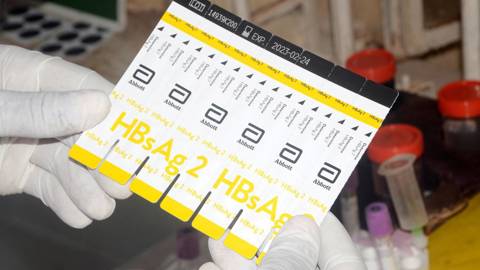
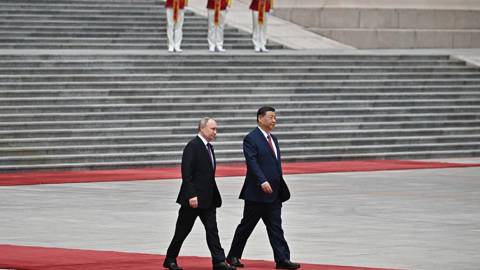

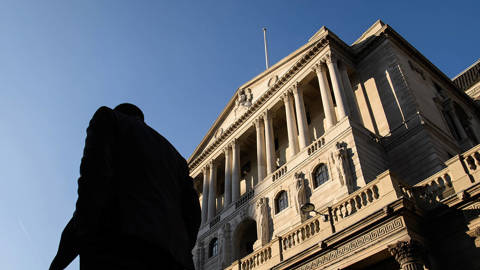
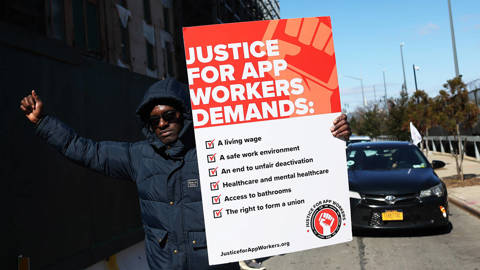

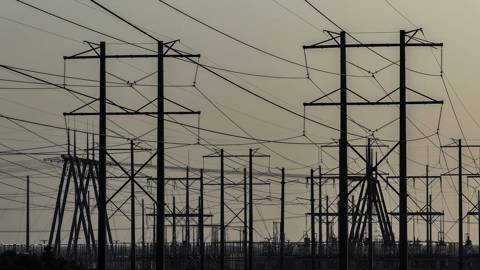


PARIS – In democracies, justice is supposed to be independent. Some prosecutors and investigating magistrates, however, conveniently forget this. Indeed many among them are deeply enmeshed in politics, pursuing agendas – and vendettas – of their own.
The phenomenon of politicized prosecutors and investigating magistrates is becoming global, arising in democracies as diverse as Japan, Italy, France, Spain, Turkey, and Argentina. In all these countries, prosecutors and magistrates hurl accusations of corruption against governments and ruling parties – charges that also happen to suit the political and institutional interests of the magistrates.
Japan ’s state prosecutor has, for example, accused Ichiro Ozawa, the General-Secretary of the newly elected Democratic Party of Japan, of having received illegal funds to run the DPJ’s recent campaign against the Liberal Democratic Party. That three close aides to Ozawa have been indicted only months after the DPJ’s victory strikes many Japanese as odd, given the well known corruption of the LDP when in power.
But the LDP worked hand in glove with Japan’s deeply entrenched bureaucracy, of which the prosecutors are a part. The DPJ has vowed to shake up the cozy relations between Japan’s bureaucrats, politicians, and big business. By indicting people close to Ozawa, the prosecutors appear to be acting in defense of the status quo .
In Italy, prosecutors in Rome, following the lead of their colleagues in Milan, are now going after Prime Minister Silvio Berlusconi. Italy’s investigating magistrates have consistently refused to accept the popularity and electoral power of a business tycoon whom they have tried to convict for many years. Berlusconi may not be the most refined of Italians, but after many trials it has never been proven that he committed any crime. Yet magistrates continue to haul him into court.
In France, Paris magistrates attempted for years to indict former President Jacques Chirac on charges of corruption. So long as Chirac was president, there was no legal way to pursue him. But, with Chirac retired and nearly 80, one “independent” judge has reopened the case. Chirac is alleged to have employed municipal civil servants when he was the mayor of Paris, 20 years ago, as aides in his electoral campaign. Let us remember that no judge ever indicted François Mitterrand, Chirac’s socialist predecessor, for using government funds to entertain his mistress and illegitimate daughter.
SPRING SALE: Save 40% on all new Digital or Digital Plus subscriptions
Subscribe now to gain greater access to Project Syndicate – including every commentary and our entire On Point suite of subscriber-exclusive content – starting at just $49.99.
Subscribe Now
As further proof of the politicized nature of some French magistrates, immediately after former Prime Minister Dominique de Villepin was cleared of charges that he had tried to smear President Nicolas Sarkozy, the prosecuting magistrate announced that he would appeal the court’s ruling and prosecute de Villepin again.
In Buenos Aires, one wonders about the motives of the Supreme Court, which has forbidden President Kristina Kirchner from changing the chairman of the central bank. Kirchner is not above suspicion, but the judges’ lack of a watertight legal case raises suspicions of a political motive.
The situation is more byzantine, but just as politicized, in Turkey, where prosecutors and judges have consistently set their sights on the moderately Islamic Justice and Development Party (AKP) in the name of protecting the secular constitution. After the AKP was elected in 2003, the Supreme Court dissolved it in order to prevent Recep Tayyip Erdogan from becoming Prime Minister. The AKP had to change its name and, for a time, Erdogan had to foreswear the premiership.
In 2008, prosecutors again tried to have the AKP dissolved, on charges that it was undermining the constitution. In 2009, the Supreme Court dissolved the main legal Kurdish party, the DST, accused of being connected with the Kurdish guerillas. This arbitrary decision deprived millions of Kurds from any legal representation and disrupted the AKP government’s attempt to reconcile the Kurds with the Turkish Republic.
Of course, not all judges and prosecutors engage in nakedly partisan activities. European prosecutors tend to lean to the left, whereas their Latin American and Japanese counterparts tend to be conservative and pro-establishment.
Perhaps the most famous investigating magistrate of all, Spain’s Baltasar Garzon, is usually portrayed as waging a borderless crusade for justice. His targets, however, almost invariably come from the political right. But rather than pursuing such an open ideological agenda, most activist magistrates tend to act as a corporation: their motives can be politicized, but their professional, guild interests come first.
Famously in France’s Ancien Régime, the judges collectively acted as a close-knit, self-contained social class. The French Revolution and the introduction of universal suffrage were aimed as much at ridding France of the corporation of judges as they were at getting rid of the nobility.
But, despite democratization, judges and prosecutors everywhere have tended to resurrect themselves as a self-appointed elite, insulated by society’s desire that justice be seen as independent. When one looks closely at the careers of judges in the above-mentioned countries, the law can vary, but cooptation is the usual rule of the game: a successful judge or prosecutor, in order to climb the professional ladder, must follow the guidance of his peers and increase the influence of his corporation.
One should also consider why anyone wants to become a judge. Aspiring judicial candidates usually want to “clean up” society. It is revealing that in Italy, in the 1980’s, the judges who battled the Sicilian mafia described their campaign as “clean hands.” In that case, the label fit. More often, however, the cleansing is a pretext to change political direction after the people have voted in a way that magistrates oppose.
Democracy is supposedly based on a separation and balance of institutional power. That equilibrium works so long as each institution is submitted to close scrutiny – which judges and magistrates have simply avoided.
I see no reason to trust judges and prosecutors more than presidents and legislators. It is high time for the supposed Fourth Estate – the media – to scrutinize the behavior and motives of judges and prosecutors, both individually and collectively, in the same way they do elected officials.